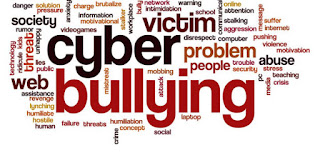Confronting & Minimizing Online bullying.
Online Cyber-bullying has become a disturbing hot topic for teens & adults alike, although there's no 💯% way to 📵💻 there are ways to significantly decrease & eliminate the bullying. Here's a few:
Encourage stronger password security.
No parent wants a stranger or potential bully to have access to their child’s SM account or e-mail address and all of the contacts within. teaching your kids the importance of passwords, why they need to be protected, what can happen when they are stolen, and that passwords should be easy to remember, but hard to guess. like their nickname backwards, an hashtag & age reversed. or Pa$$W0rD#411..yes, but effective
If you or your child have android or iphone, in almost all phones there's a memo or notes function section, keep passwords there.
parents of burgeoning social networkers—such as 13-year-old teens who are newly eligible to sign up for Facebook—should always have their child’s password on file. “When young people first start using Facebook, it’s important that parents pay very close attention.
Install monitoring software—even if you don’t use it.
Not every teenager is anxious to share his or her online experiences, even when an uncomfortable or harassing situation arises. So what’s a parent to do if a child isn’t forthcoming about online teasing or otherwise harmful digital circumstances?
Gather evidence.
It’s not a matter of whether you trust your child’s account. It’s a matter of proof. “Maybe he can show you the hate site or impostor profile or nasty e-mail or text message,” said Collier. “If not, a great thing to do is start gathering your own evidence—maybe it’s a screenshot or a copy-and-pasted conversation.”
Get school's involved
If you’re worried about a school’s ability to intercede in online bullying cases, don’t. “More and more schools absolutely have the authority to respond to off-campus speech if that speech has caused—or there are strong reasons to believe it will cause—substantial disruptions, such as violent altercations between students, classroom interruptions,
Any child who has been victimized by a cyberbully will need some time to recover. Willard offers a few tips to facilitate that process. Key important steps:
1. surround him or her in a network of adults and peers who can help reinforce a sense of self, and be sure to keep the child busy with extracurricular activities they’ll look forward to.
2. Family & peer support, in addition to healthy activities and hobbies, are really important to help your child be more resilient & the more resilient, secure your child feels, the less any bully will have to go on.”
Monitoring software such as SafeSocial, SafetyWeb, and Spector can help you keep tabs on your child’s online activities.
DO NOT ENGAGE With ABUSIVE OR NASTY REVENGE Convo!
that will escalate matters..very counterproductive SMH..instead screenshot their page, report to SM 4 abuse, then resend with warnings its been reported to the FBI as a federal crime. Change SM settings immediately.




Comments